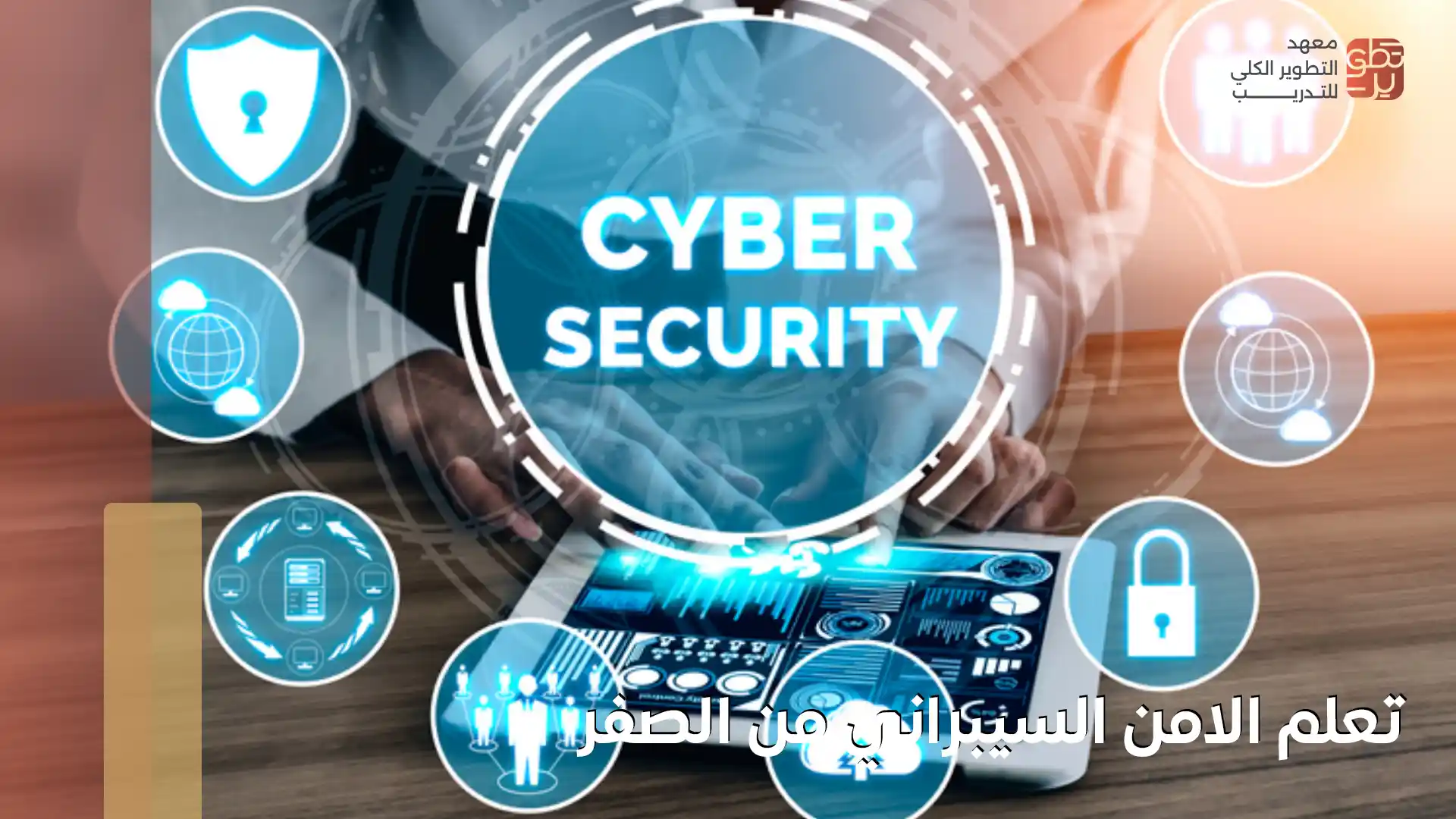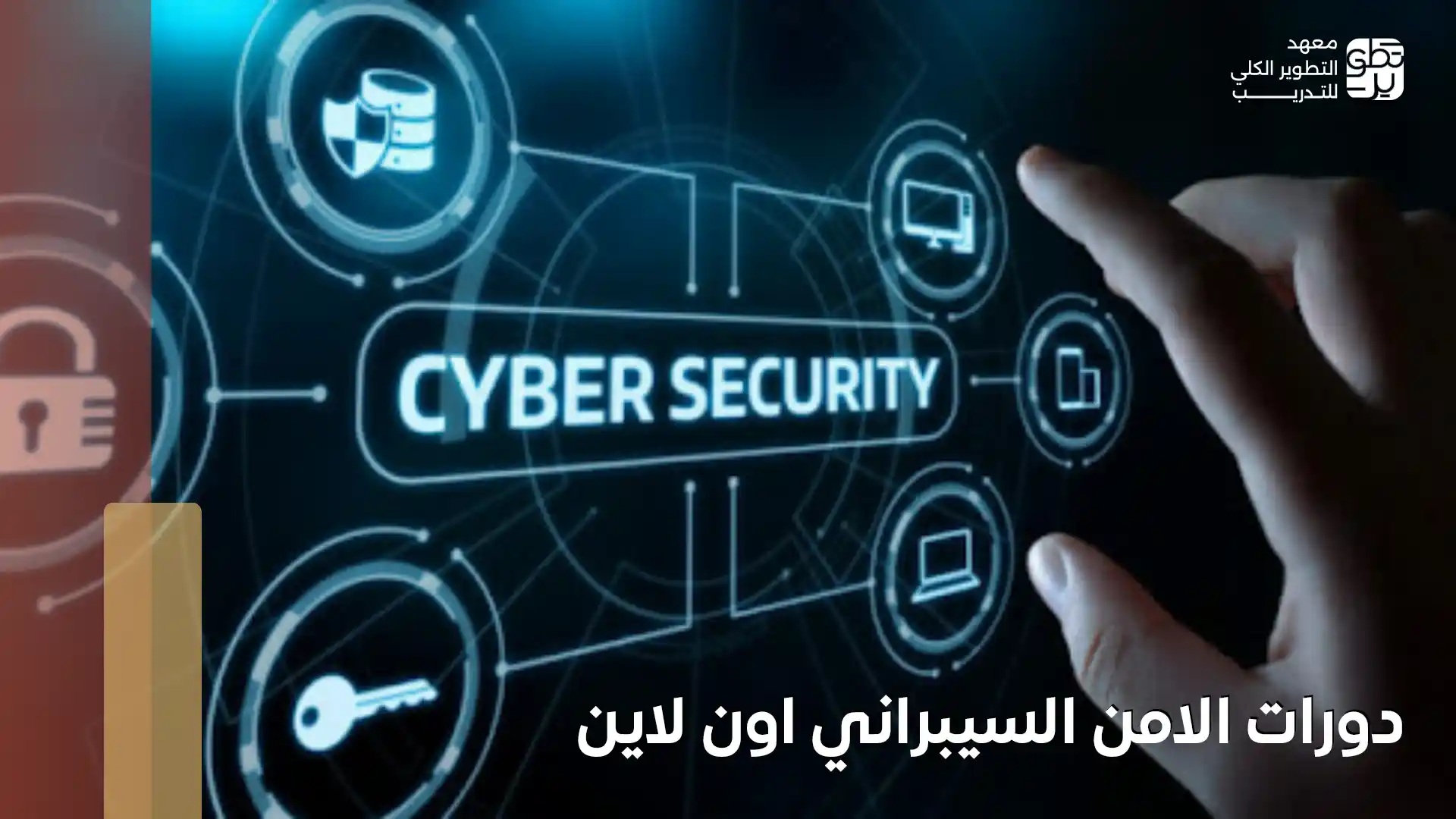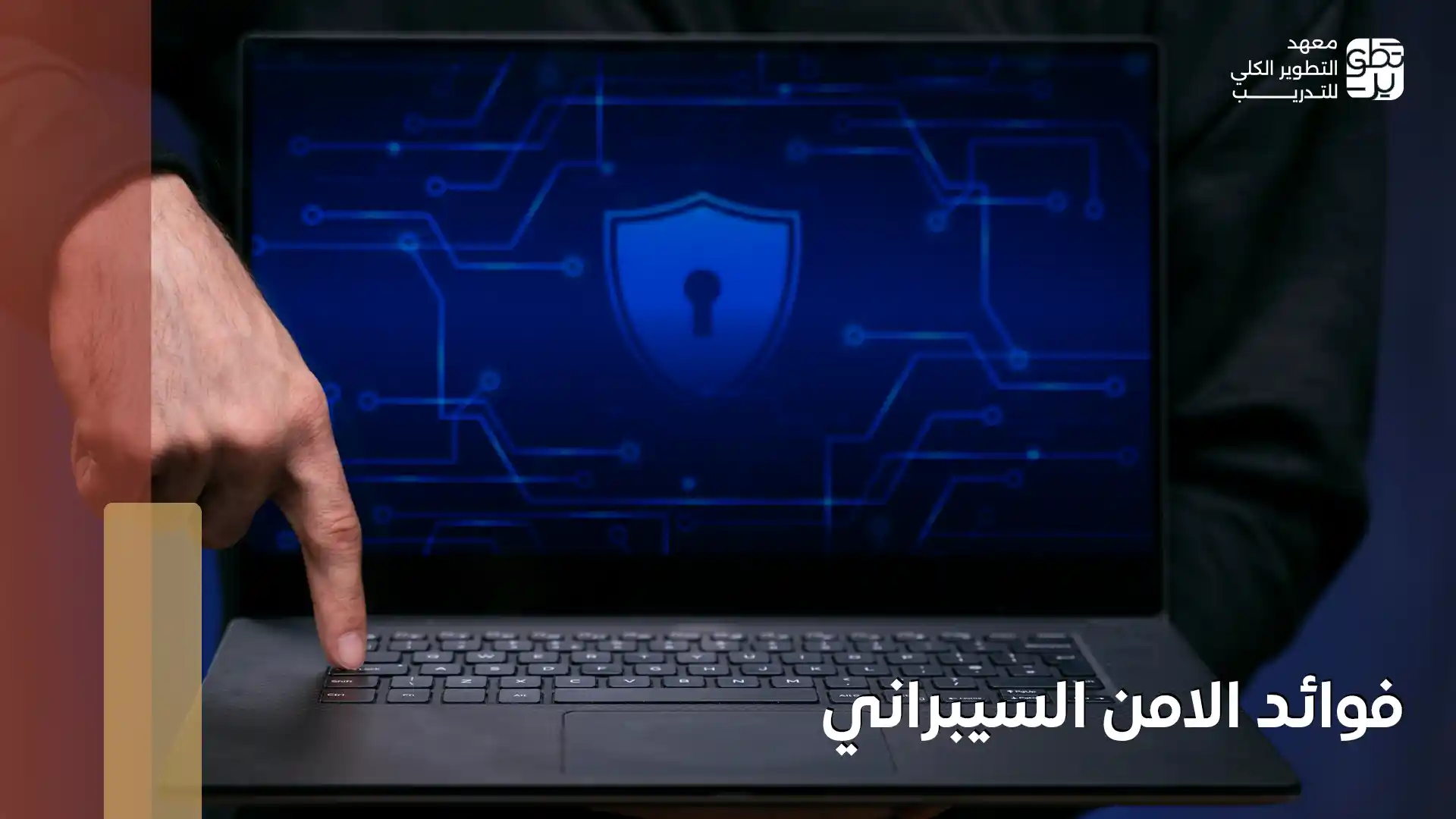
Have you ever wondered how large companies protect their data from breaches? Or how cyber attacks are prevented before they happen? If you're looking for a promising career path, it's time to learn cybersecurity from scratch.
In this article, we will explore cybersecurity, the best courses to help you learn it, the skills you will gain from these courses, and the job opportunities after completing cybersecurity courses. We will also discuss how Macro Development Institute for Training can help you build your professional future through remote cybersecurity courses and accredited cybersecurity certifications. Keep reading.
Best Training Institute to Learn Cybersecurity from Scratch
Choosing the right training provider directly affects the quality of learning and practical application opportunities. If you're looking for a strong start in the field of cybersecurity, here’s why Macro Development Institute for Training stands out:
- The institute offers remote cybersecurity courses that allow you to learn from anywhere and at a pace that fits your schedule.
- All courses are accredited by official bodies, meaning the certificates you receive open real career doors.
- The curriculum combines theoretical knowledge with practical application using interactive tools and real-world simulations.
- The institute features expert trainers in cybersecurity who combine academic qualifications with practical experience.
- The institute uses modern technologies such as virtual reality to simplify complex technical concepts, making it easier for beginners to learn cybersecurity step by step.
- The training environment is tailored to market needs, meaning you will learn not just for knowledge but for actual employment or professional development.
If you're planning to build your career from scratch, Macro Development Institute for Training provides a step-by-step learning path, from basic concepts to specialized fields.
What is Cybersecurity and Why is It Important?
Cybersecurity is a set of actions and techniques designed to protect systems, networks, and data from cyber attacks and breaches. It includes securing personal information, bank accounts, corporate data, digital infrastructure, and anything that could be hacked or sabotaged online.
The importance of cybersecurity is evident everywhere, such as:
- Protecting accounts from theft.
- Securing corporate data from extortion.
- Preventing attacks on vital government systems.
- Maintaining the confidentiality of information in medical and educational institutions.
In short, any organization that relies on technology is exposed to cyber attacks, which is why having cybersecurity experts has become essential, not optional.
If you're thinking of entering this field, learning cybersecurity from scratch is the right start. You can choose between remote cybersecurity courses or accredited cybersecurity certifications to begin practically.
Macro Development Institute for Training offers flexible and updated learning paths in this field, helping you acquire the necessary skills from beginner to professional.
Steps to Learn Cybersecurity from Scratch
Learning cybersecurity from scratch has become one of the most important skills in the digital age, as it enables individuals and organizations to protect data and systems from threats and cyberattacks. For beginners looking to enter this field, the following steps can be followed:
- Understand the basics of computing and networking: to build a strong foundation in handling systems and protocols.
- Learn the fundamentals of cybersecurity: including confidentiality, integrity, availability, and types of digital attacks.
- Familiarize yourself with secure operating systems: such as Linux and Kali Linux, and learn to manage permissions and networks.
- Learn the basics of encryption: and techniques to protect data using protocols like SSL/TLS and VPN.
- Learn penetration testing (ethical hacking): and use tools such as Nmap, Metasploit, and Wireshark.
- Learn defensive security and risk management: by setting up security policies and using intrusion detection systems (IDS/IPS).
- Gain practical experience: through virtual labs and hands-on projects to enhance skills.
- Obtain certified credentials: such as CompTIA Security+ and CEH to strengthen your career path.
- Keep learning continuously: to stay updated with the fast-evolving field of cybersecurity.
By following these steps to learn cybersecurity from scratch, any beginner can build a comprehensive professional path in cybersecurity and excel in a field with growing demand for specialized expertise.
Skills You Gain from Accredited Cybersecurity Courses
If you're planning to learn cybersecurity from scratch, there are a set of basic skills that you should focus on. These skills will help you understand the field practically and provide you with the essentials you need for any specialized job in this field:
- Networking (Networks): Understanding networks is crucial to knowing how data flows and how attacks occur. Most threats rely on exploiting vulnerabilities in networks, so you must know how they work and master basic concepts like TCP/IP, routing, and firewalls.
- Programming: Programming is a key tool in cybersecurity. You'll need to analyze code, write scripts, and develop tools to scan for vulnerabilities. Python is the most commonly used language due to its ease of learning and powerful libraries, along with other languages like C or Java depending on the specialization.
- Operating Systems: A deep understanding of operating systems, especially Linux and Windows, is essential. Knowing how the system works and how to manage it helps you detect vulnerabilities, secure systems, and analyze suspicious activities or hacking attempts.
- Computer Science: Your understanding of computer science will help you build a clear picture of how systems work internally, allowing you to analyze application infrastructure, identify attack patterns, and develop advanced security tools.
All of these skills are developed in accredited cybersecurity courses, offering you structured and comprehensive training content.
Macro Development Institute for Training offers flexible programs that help you learn cybersecurity from scratch step by step and equip you with the skills that will qualify you to enter the job market effectively.
Top Cybersecurity Courses (Online and In-Person) Offered by Training Institutes
If you're planning to learn cybersecurity from scratch, start with foundational accredited courses that provide clear, gradual content. Here are some suggestions:
- Cybersecurity Fundamentals: Offered by Macro Development Institute for Training, this course focuses on basic cybersecurity concepts, such as common threats, protection from malware, and dealing with security incidents. Perfect for beginners.
- Diploma in Cybersecurity and Information Protection: This comprehensive program combines theoretical and practical aspects, preparing students for advanced understanding of data protection, system management, and security vulnerabilities analysis.
- CompTIA Security+: An internationally recognized course that paves the way for understanding the basics of network security, encryption, and risk management. A suitable choice for those starting from scratch.
- Certified Ethical Hacker (CEH): Offers practical training on ethical hacking techniques and how to discover system vulnerabilities in a legal manner.
- Certified Information Security Manager (CISM): Focuses on preparing leaders in the field of cybersecurity, teaching them to develop security strategies and manage security operations.
- CISSP: Designed for experienced professionals, covering topics like application security, infrastructure, governance, and incident management.
- Advanced Cybersecurity for Professionals: Designed for professionals looking to enhance their skills in analyzing cyber attacks and protecting critical infrastructure.
All of these courses can be taken online or in person, depending on the training provider. Macro Development Institute for Training offers a flexible learning environment with accredited training, making it an excellent choice for those wanting to learn cybersecurity from scratch in an organized and practical way.
How to Choose the Right Cybersecurity Course for You
Choosing the right course is a crucial step if you're planning to learn cybersecurity from scratch, especially with the variety of content and platforms available. Here are some practical steps to help you make the right decision:
- Assess your current level. If you're starting from scratch, ensure the course is beginner-friendly and covers the basics clearly.
- Review the course content in detail. Look for courses that include topics such as cybersecurity threats, networking, system protection, and ethical hacking.
- Choose from accredited cybersecurity courses to ensure your certificate is recognized by governmental and private bodies.
- Check the learning format. If you prefer flexibility, remote courses provide the freedom to learn from anywhere and at any time.
- Look at reviews from previous participants to understand the effectiveness of the course in terms of explanations, practical application, and technical support.
- Check the trainers' experience. A professional trainer makes a significant difference in understanding and applying concepts correctly.
- Compare the cost of the course with the value offered. Choose the course that provides quality content, technical support, and an accredited certificate at a reasonable price.
Macro Development Institute for Training offers a range of online cybersecurity courses that are perfect for those looking to learn cybersecurity from scratch. With professional trainers, accredited certificates, and content designed to prepare you for the job market step by step, it's an excellent choice for your cybersecurity journey.
Modern Cybersecurity Course Technologies
Cybersecurity threats are continuously evolving, and as a result, the technologies used in cybersecurity courses are also advancing to keep pace with these growing threats.
These courses aim to equip trainees with the latest tools and techniques to defend against sophisticated cyberattacks. Here are the key technologies taught in modern cybersecurity courses:
|
Technology |
Description |
|
Advanced Encryption |
Learn modern encryption techniques such as AES and RSA to protect data during transmission and storage, and understand advanced algorithms. |
|
AI and Machine Learning in Cybersecurity |
Use AI and machine learning (ML) techniques to analyze data and detect threats faster and more accurately. |
|
Incident Response with AI |
Apply AI to help security teams analyze and respond to cybersecurity incidents more quickly and automatically. |
|
Cloud Security |
Learn techniques for securing data in cloud environments, such as access control, encryption, and cloud governance. |
|
Digital Forensics |
Learn how to conduct investigations into security incidents and analyze digital evidence to understand how attacks occurred. |
|
Distributed Computing |
Secure distributed systems such as Blockchain networks and protect them from cybersecurity threats targeting these systems. |
|
Anti-malware Techniques |
Learn how to detect malware such as viruses and malicious software (Malware) and protect against it using advanced techniques. |
|
Ethical Hacking |
Learn how to conduct penetration tests to find vulnerabilities in systems and software, discovering weak points before attackers exploit them. |
|
IoT Security |
Learn how to secure internet-connected devices (like smart home devices and connected cars) from cyberattacks. |
|
Behavioral Analysis |
Use behavioral analysis techniques to detect abnormal data patterns and interactions with systems, helping to identify early-stage attacks. |
|
Mobile Security |
Learn techniques to protect mobile devices and apps from threats like malware, data theft, and targeted attacks. |
|
Quantum Security |
Study the impact of quantum computing on cybersecurity and how to develop new encryption techniques to handle future threats. |
Modern cybersecurity techniques are essential for protecting systems from evolving and increasing threats. By learning these advanced techniques, trainees can develop the skills necessary to keep up with the latest cyber defense methods, thereby enhancing their ability to protect systems and networks efficiently.
Cybersecurity Learning Duration
The duration of learning cybersecurity depends on the type of course or program you choose, as well as your personal goals in the field. Below is an approximate breakdown of the time required based on course type and learning level:
|
Course Type |
Duration |
Description |
|
Beginner Course (Cybersecurity Basics) |
2 to 4 weeks |
For beginners with no prior background in cybersecurity, covering basic concepts and general threats. |
|
Intermediate Course (Network Security Techniques) |
4 to 6 weeks |
For those with basic IT knowledge, focusing on securing networks and systems. |
|
Advanced Course (Network and Application Security) |
6 to 8 weeks |
For professionals who want to learn advanced techniques like penetration testing and application security. |
|
Professional Certifications (e.g., CISSP, CEH, CompTIA Security+) |
3 to 6 months |
Courses leading to internationally recognized certifications, such as CISSP and CEH, require more time to prepare. |
|
Specialized Courses (Cloud Security, Incident Analysis) |
4 to 8 weeks (depending on specialization) |
Focused on specific areas such as cloud security or digital forensics. |
The duration of cybersecurity learning depends on the course level and personal goals. If you are a beginner, you can learn the basics in a few weeks, while if you're aiming for a professional certification or specialization in a particular area, you may need several months or even a year to complete the course and graduate.
Tips for Learning Cybersecurity
To learn cybersecurity effectively, you should follow a set of tips that will help you build a solid knowledge base and develop practical skills. Here are the key tips for learning this field:
- Start with the basics: It's important to begin by learning fundamental concepts such as networking, operating systems, and programming. These basics will form the foundation for your advanced knowledge in cybersecurity.
- Set your learning path: Once you master the basics, determine the area you want to specialize in, such as penetration testing, network security, or incident analysis. Defining your path will help you focus on the most relevant skills.
- Learn programming: Programming is essential for understanding how to discover vulnerabilities in software. Learning languages like Python and C++ greatly enhances your cybersecurity skillset.
- Get recognized certifications: Certifications like CISSP, CEH, and CompTIA Security+ are important as they provide specialized knowledge and open career opportunities in cybersecurity.
- Practical experience: Apply what you've learned in virtual environments such as Kali Linux and Metasploit to test systems and applications. This practice boosts your skills and increases your ability to deal with real threats.
- Stay updated: Since cybersecurity is a rapidly evolving field, it's essential to keep up with the latest news and trends through blogs, webinars, and various learning resources.
- Join online communities: Join forums and discussion groups like Reddit and StackOverflow. These communities help you exchange knowledge with others and benefit from the expertise of specialists.
- Participate in cybersecurity challenges and competitions: Engaging in CTF (Capture the Flag) competitions gives you the chance to test your skills practically, enhancing your ability to identify vulnerabilities and solve problems in live environments.
By following these tips, you will be able to learn cybersecurity effectively and keep up with the rapid changes in this field.
How to Choose the Right Cybersecurity Course for You?
Choosing the right course is a key step if you plan to learn cybersecurity from scratch, especially with the variety of content and platforms available. Here are practical steps to help you make the right decision:
- Assess your current level: If you’re a beginner, make sure the course is designed for beginners and covers the basics clearly.
- Review the course content: Look for a course that includes topics like cybersecurity threats, networks, system protection, and ethical hacking fundamentals.
- Choose accredited cybersecurity courses: Ensure the course offers recognized certification that will be acknowledged by government and private sectors.
- Check the learning style: If you prefer flexibility, online courses provide significant freedom to learn from anywhere and at any time.
- Check reviews from past participants: Read reviews to assess the course's effectiveness in terms of explanation, hands-on application, and technical support.
- Evaluate the trainers' experience: A professional instructor makes a significant difference in understanding and correctly applying concepts.
- Compare course cost and value: Choose a course that offers good content, technical support, and an accredited certificate at a reasonable price.
The Macro Development Institute for Training offers a range of remote cybersecurity courses suitable for those looking to learn cybersecurity from scratch, under the guidance of professional instructors, with accredited certificates and content designed to gradually prepare you for the job market.
Career Opportunities After Completing Accredited Cybersecurity Courses
After you begin learning cybersecurity from scratch and complete your training courses, you will find multiple career opportunities in various organizations, such as tech companies, banks, government sectors, and even security organizations. Each job focuses on a specific aspect of digital protection, and here are some of the prominent career paths:
- Network Security Engineer: Works on securing network infrastructure, monitoring and preventing intrusion attempts using advanced systems.
- Information Security Systems Analyst: Analyzes data and reports to identify risks and threats, proposing solutions to improve security.
- Information Security Operations Manager: Oversees the security team and defines internal cybersecurity policies in the organization.
- Information Security Officer: Focuses on implementing security policies and monitoring the protocols within the organization to protect information.
- Threat Analyst: Tracks emerging threats, studies attack patterns, and develops tools to detect them early.
- Software Security Developer: Participates in designing programs and applications with security considerations at every stage of development.
- Secure Cloud Computing Engineer: Protects data from potential threats or vulnerabilities.
- Cybersecurity Consultant: Offers strategic solutions to organizations to improve security and mitigate risks.
- Penetration Tester and Vulnerability Analyst: Simulates cyberattacks on systems to discover vulnerabilities before hackers exploit them.
If you're looking for professional training to start on this path, Macro Development Institute for Training offers intensive cybersecurity training programs, including remote and accredited courses that provide you with the practical experience needed to enter the job market.
In conclusion, learning cybersecurity from scratch isn't just an academic decision, it's a real investment in your future. With increasing digital threats, the demand for specialists who can mitigate risks and secure data is rising. Through the right training, you can access a wide range of jobs such as Network Security Engineer, Information Systems Security Analyst, or Cybersecurity Consultant.
Start your journey today with Macro Development Institute for Training, and enroll in one of the accredited programs to be ready to face the challenges of the digital world. Sign up now and start your cybersecurity career with the most powerful accredited courses.
Frequently Asked Questions
What is the difference between accredited and non-accredited cybersecurity courses?
Accredited courses provide official certificates from recognized bodies, enhancing your job prospects. Non-accredited courses may be useful for knowledge, but they don’t add significant value to your resume.
Can cybersecurity be studied remotely?
Yes, there are many remote cybersecurity courses available that provide flexibility in time and place, especially for those working or with other commitments.




